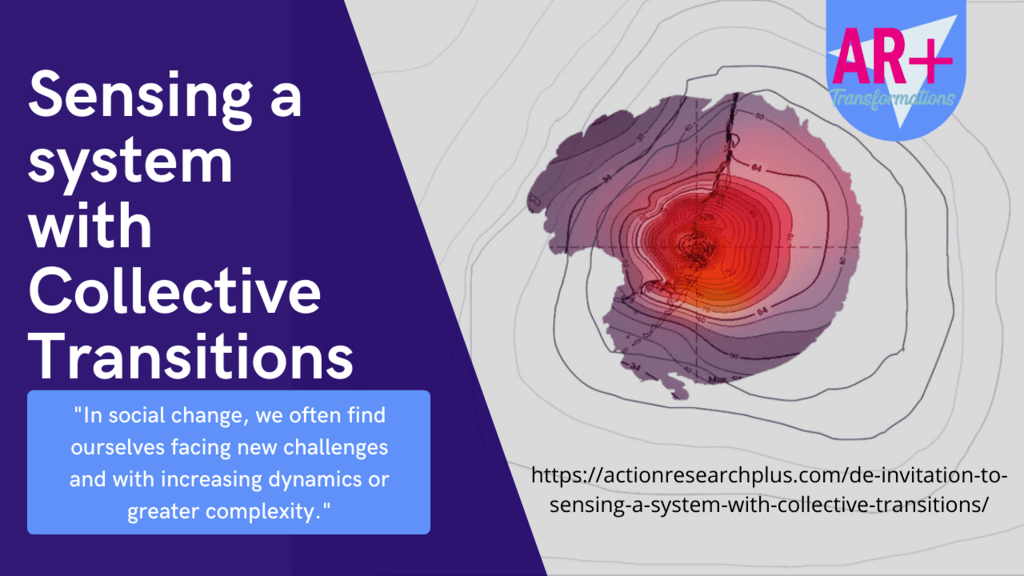Invitation to Sensing a system with Collective Transitions.

Luea Ritter and Nancy Zam write: “In social change, we often find ourselves facing new challenges and with increasing dynamics or greater complexity. For example, plans or strategies that once felt solid and secure, may no longer be realistic or feasible. A challenge may bring a project to a momentary standstill. As one moves from the space of “the known,” they enter the “space between.” How do we best navigate uncharted territory? How do we collectively stay present in the suspect of the space between and how do we move to a more safe and stable ground? What are our innate capacities for creatively wayfinding and what are resources for how do we make sense and meaning of the situation?
We often don’t have words to name or describe these experiences. At Collective Transitions, our developmental edge exploration is finding a language that helps to make the invisible and subtle explicit and valued including how we incorporate our capacities and other ways of knowing as individuals and as groups, and how we can create meaning together. We’re making the implicit explicit with each other.
One method to make visible and better understand the implicit and hidden patterns and dynamics of a system is the practice of Systemic Constellations, based on family constellations and the work of Bert Hellinger. Systemic Constellation builds upon Systems thinking by understanding a system through an embodied or felt-sense approach, we call system sensing. Systems sensing is a form of being “in relation with” and listening deeply to any given system and its elements, and from there, letting our next actions and decisions be informed.
We are grateful for the invitation to be part of the AR+ ecosystem and community and to practice together. What might we discover as we use our body as instruments or antennas that can pick up different types of navigational signals? What patterns might be shown from how we are sensing together into a shared question leading us to new edges? It seems like a ripe time to explore. Shall we?
For more information about Systemic Constellations, listen to this audiocast primer.
- Three stories we did not tell about NGO-Community Collaboration in Uganda - April 18, 2024
- Podcast on PAR Peacebuilding in Colombia - April 15, 2024
- Julian Hauer’s Workshop– thinking wider and deeper - April 15, 2024
